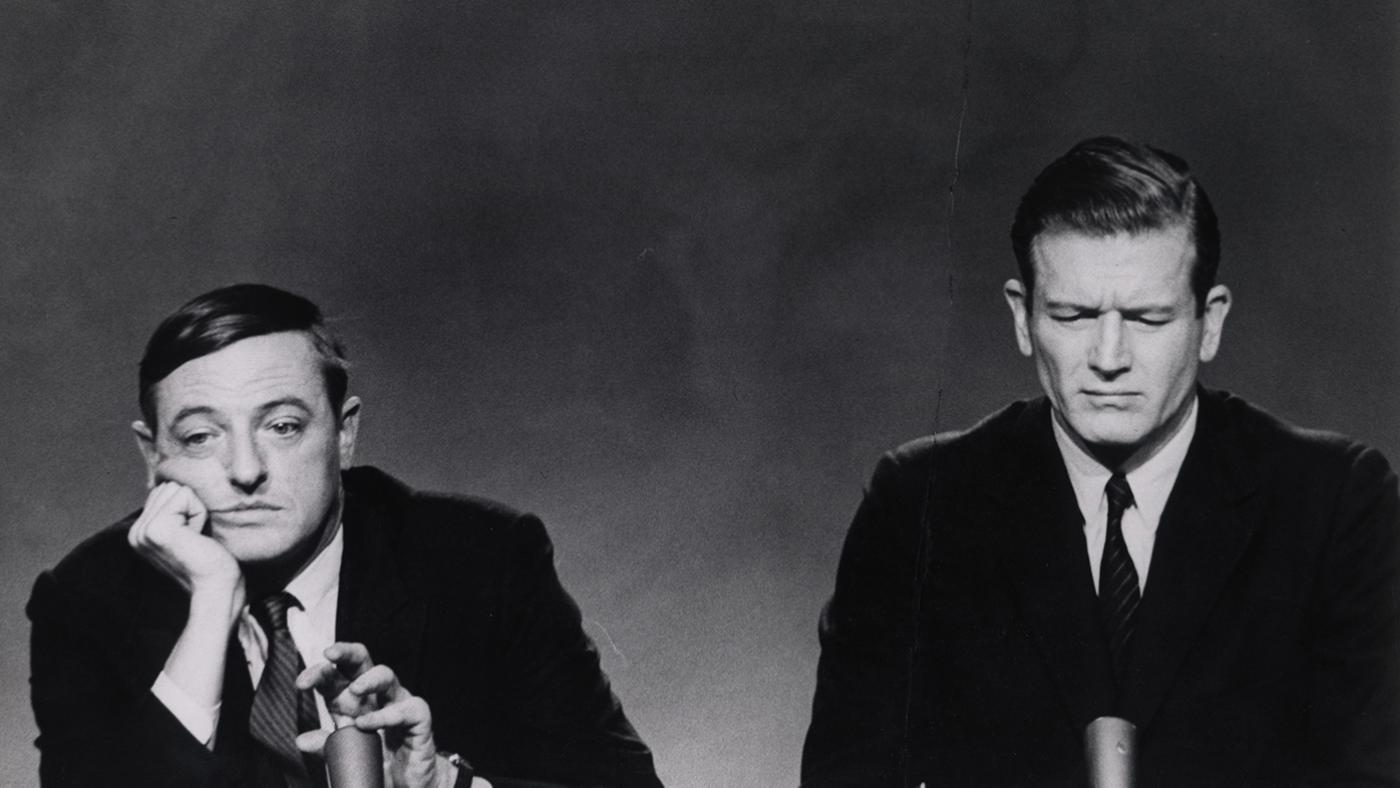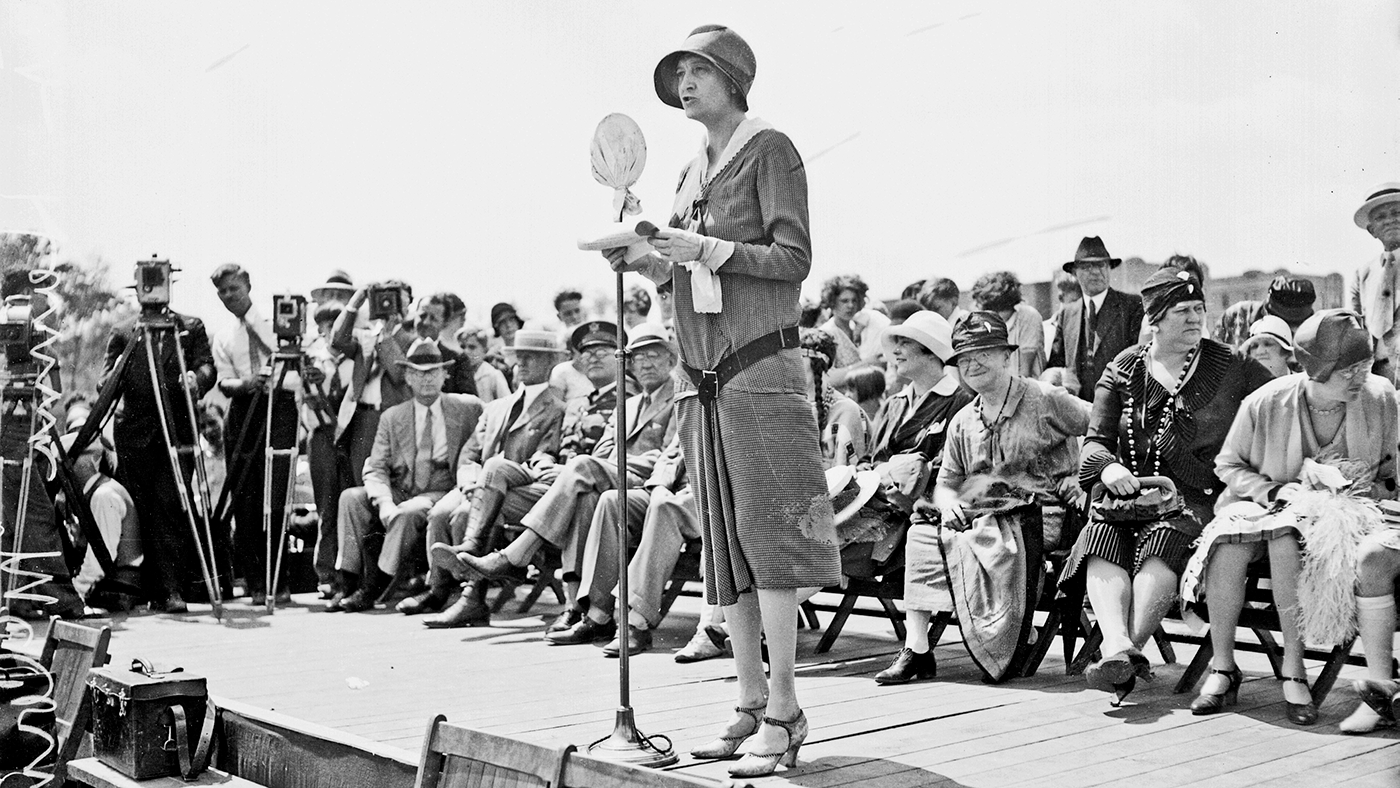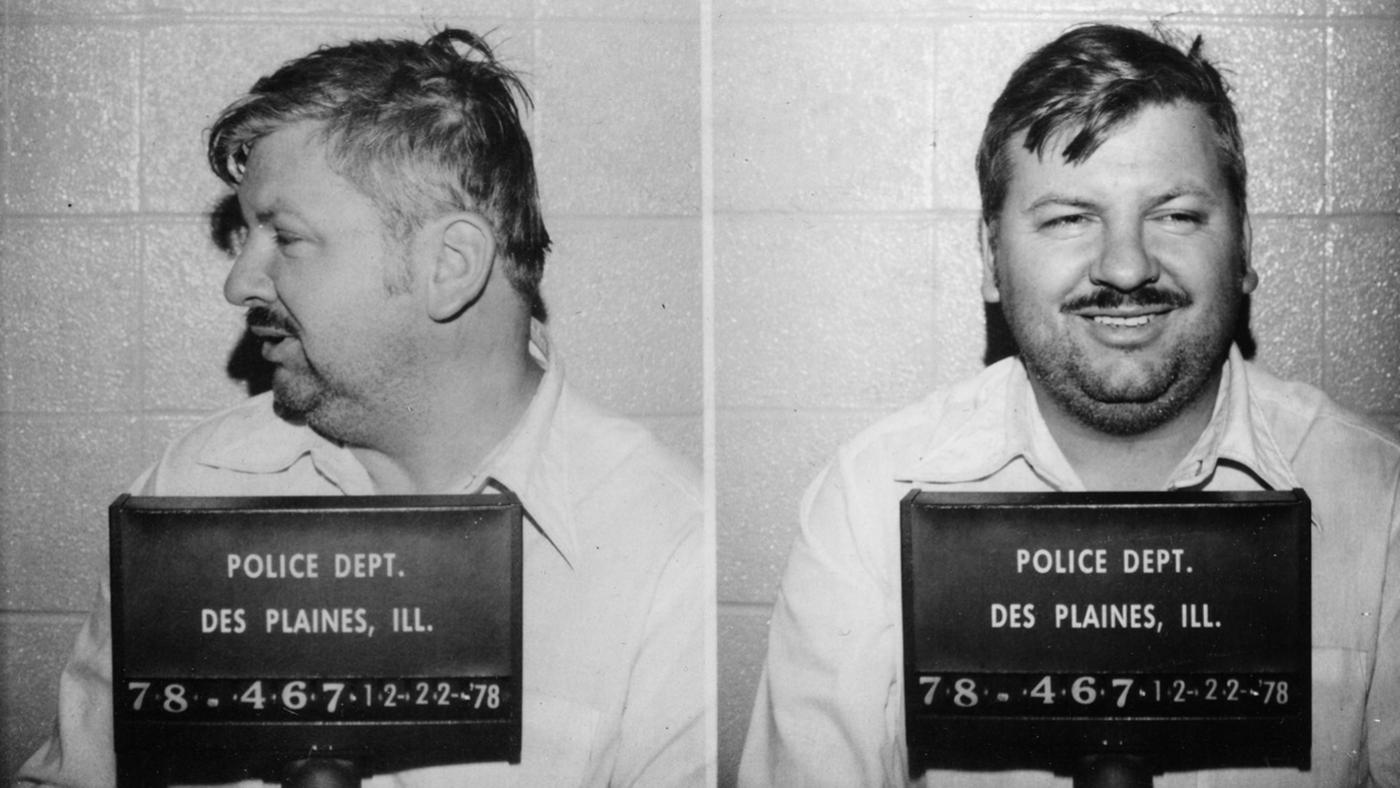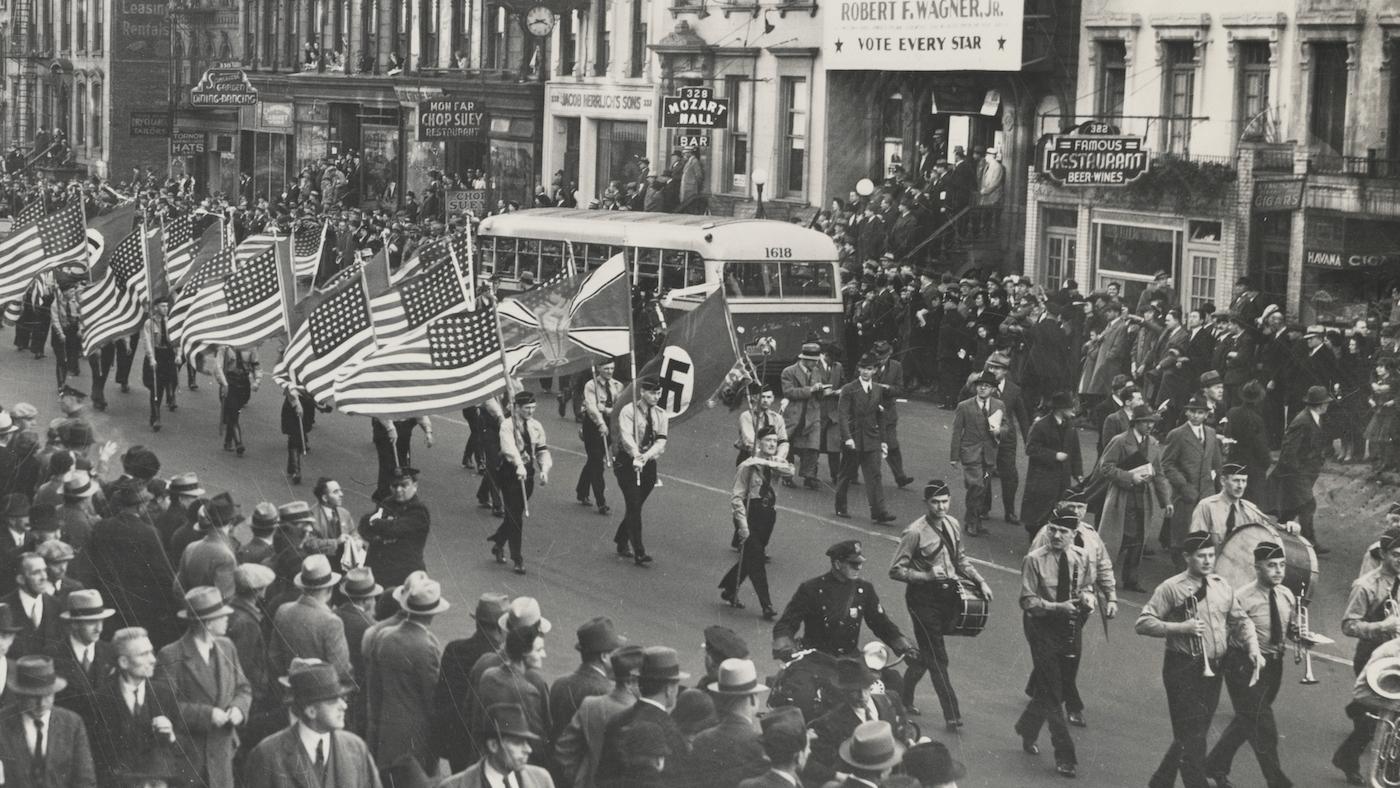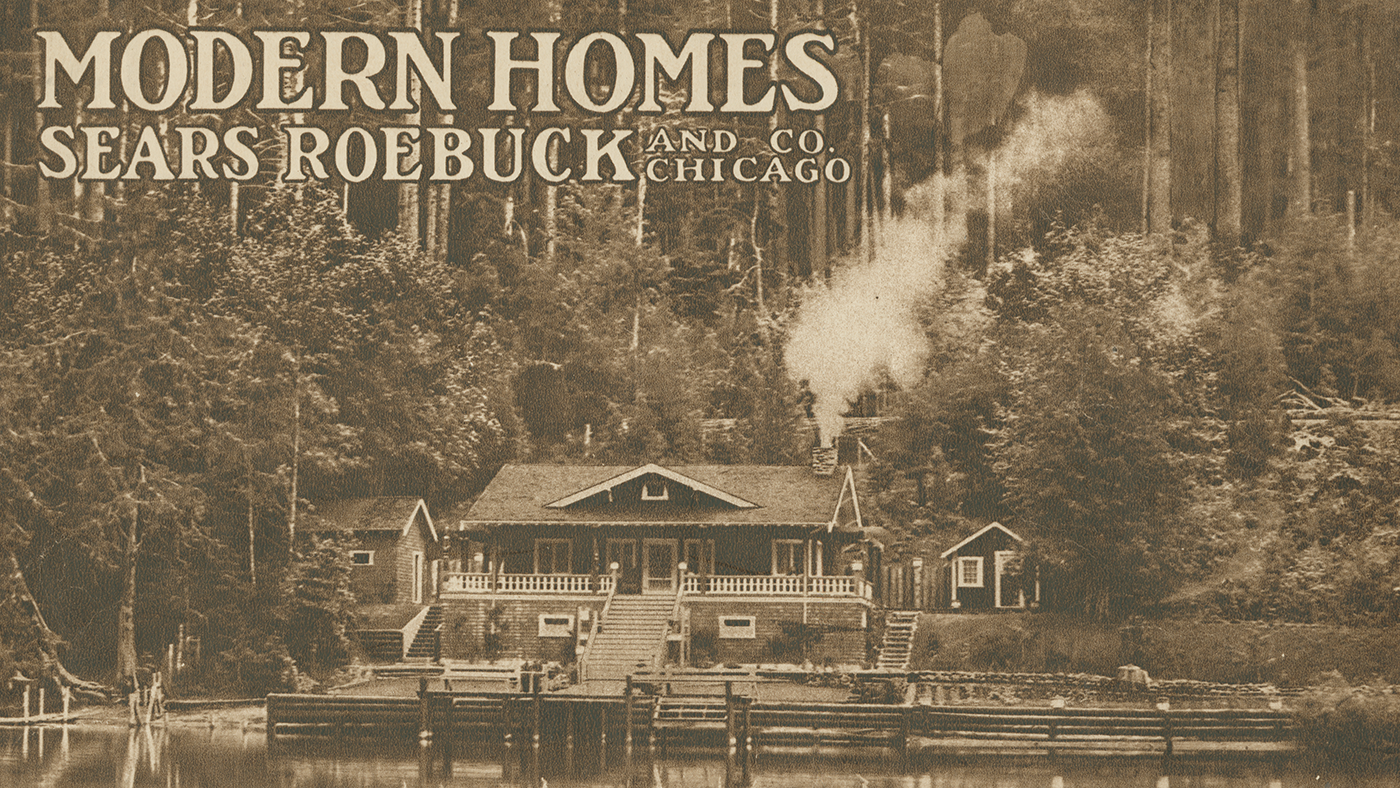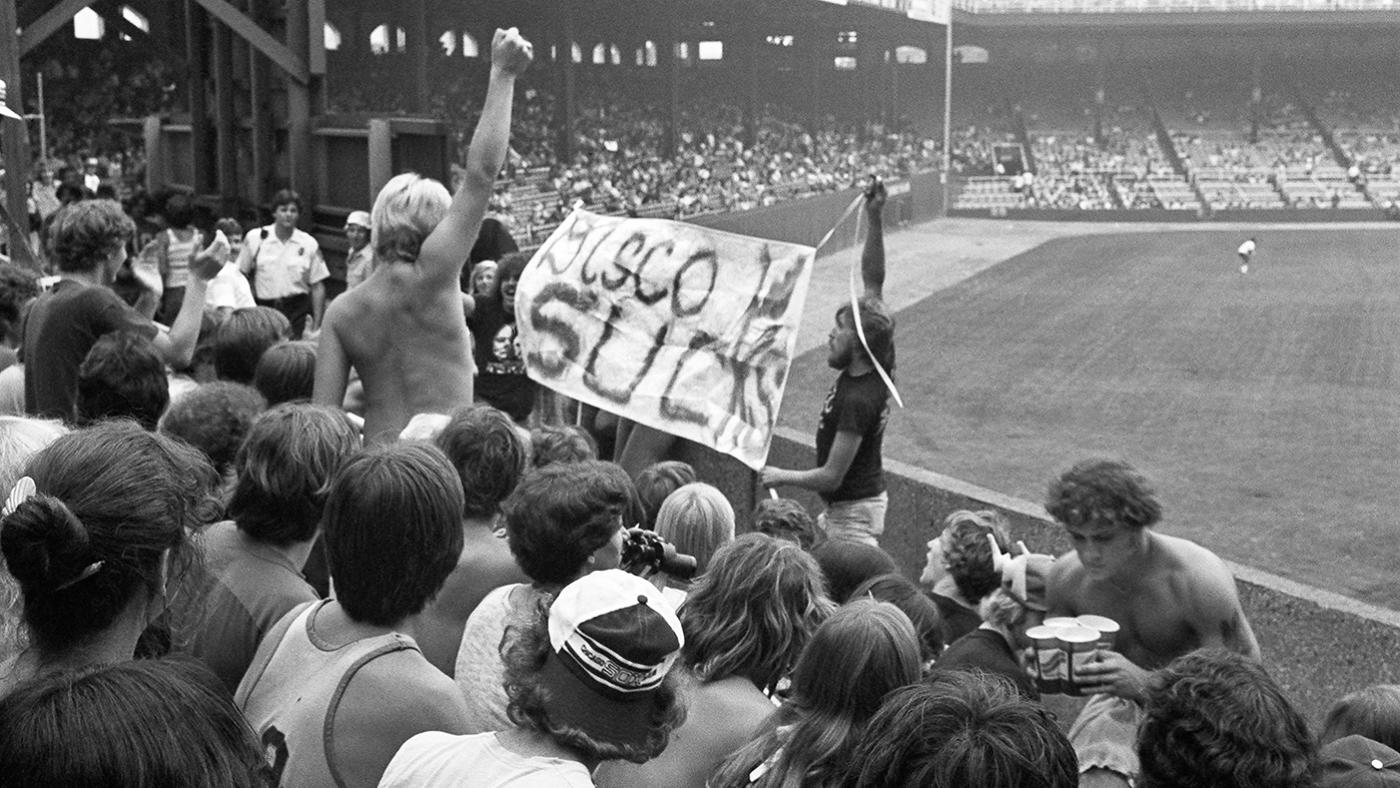An Interview with the Writer and Producer of Ken Burns's 'Country Music'
Daniel Hautzinger
August 27, 2019
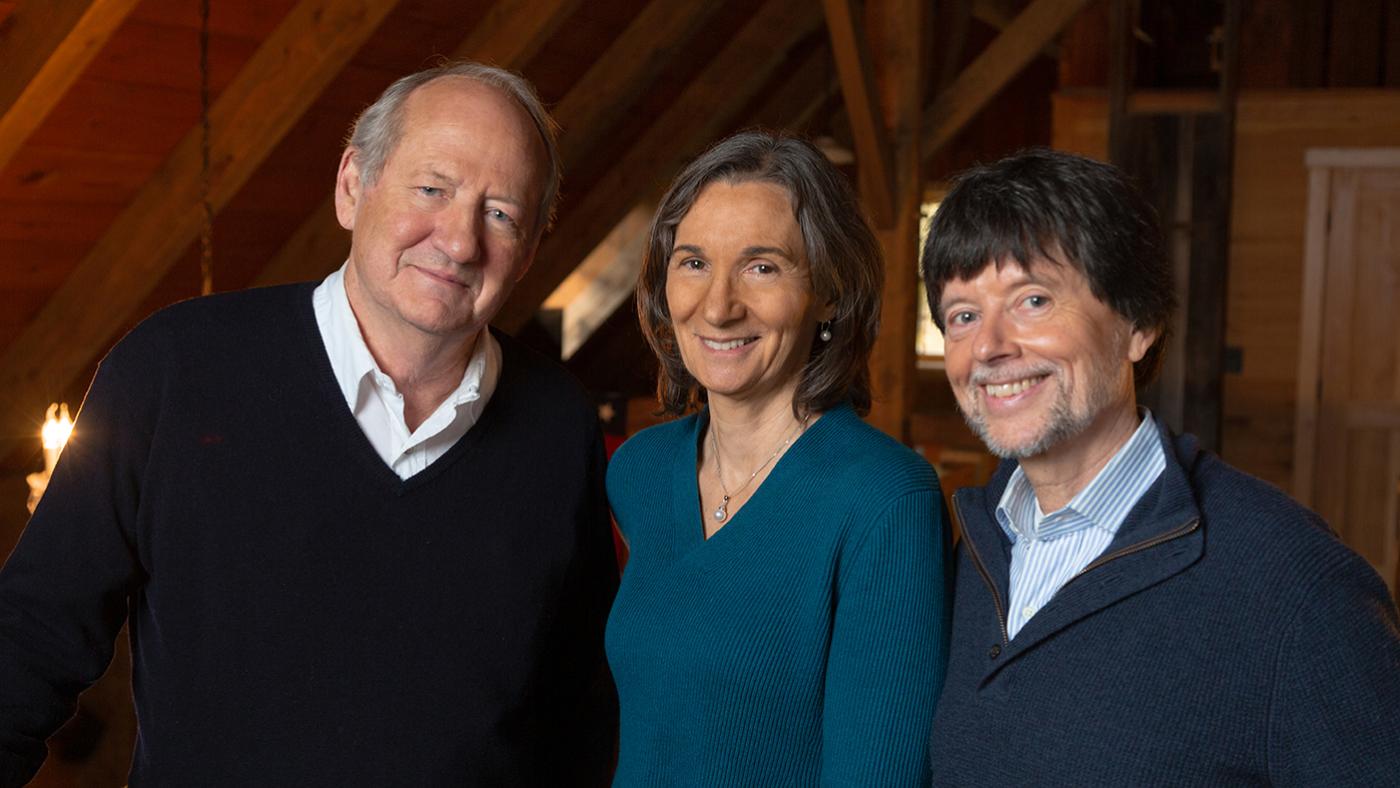
Ken Burns’s eight-part Country Music begins airing Sunday, September 15 at 8:00 pm and will be available to stream then. You can stream a preview, or watch a concert celebrating the film on Sunday, September 8 at 7:00 pm.
The newest sweeping survey of American history from Ken Burns and his team is Country Music, an eight-part series that chronicles the rise of the genre from its widespread roots through its explosion into the mainstream and development into a big business over the course of the twentieth century. We spoke to Dayton Duncan, Country Music’s writer and producer and a frequent Burns collaborator, about the film and his own relationship to country music.
What does country music mean to you?
“My relationship with country music would make a good country music song. We’ve been close, then were separated for a while, then got back together. I grew up listening to it, fell away from it a little bit when I was in my college years, then came back to it.
“I love music. I’ve written country songs myself, originally for my own therapy. Then later I sang some to the woman who became my wife. So I know the power of song to get you through and bring you closer together.”
What perspective does country music offer on American history?
“Country music is a different way to look at who we are as people and what our shared history is, and it gives you different angles to approach history. I think it’s a prism of perspectives. First of all, it is a music that rose from the bottom up. It came from people who felt that they had been looked down upon and left out, and was a way of expressing and telling their stories. At the same time, at its best, country music deals with the most universal of human emotions and experiences, and therefore it touches everybody.
“It is uniquely American in its origin: it could only have happened here, with the unique cultural mix that defines who we are as a people. As we follow country music through the twentieth century in the film, we’re also following it as it developed as a business, which is also a classically American story. And a lot of the different figures in country music whose lives we follow and whose art we highlight have incredible American stories.
“Any way you turn when you’re standing in the stream of country music, all the reflections in the river passing you by are different reflections on the larger stream of American history and the larger stream of American music.”
Why did you decide to end the series when you did, in 1996 and a little bit farther until the death of Johnny Cash in 2003?
“As we do in any of these large series that aren’t just a biography of a person or a story of a war, we stop our narrative storytelling about a generation away from the time that we’re doing it. You need that distance in time to separate it as history versus journalism. The reason we picked 1996 – we don’t hold precisely to that because we get to the story of Johnny Cash’s death – but by 1996, Garth Brooks had rocketed to fame, setting new standards of popularity for country music and taking it to new heights of permeating the American culture. 1996 is also when he demonstrated a theme that we developed throughout the eight episodes, which is the incredible and unique connection between country stars and their fans. That year, he goes to a fan fair and stands there for more than twenty hours signing autographs, and that is the apotheosis of that theme.
“In ’96, the Telecommunications Act permitted a dramatic consolidation of radio ownership, and that has had a great impact. ’96 is when Bill Monroe dies. He’s a towering figure in our film.
“And in the ’94, ’95 era is when Johnny Cash, having been unceremoniously discarded by his label and given up as a has-been, has his own redemption. He’s brought back into the studio by, of all things, a hip hop producer, to go back to the very beginnings of the whole thing: a person, a guitar, and a voice singing songs that meant something to the person singing those songs. Through that, he restored his reputation and popularity and cemented his rightful place as one of the giants of country music. We don’t pretend that this is therefore the end of country music history. The history is still being made.”
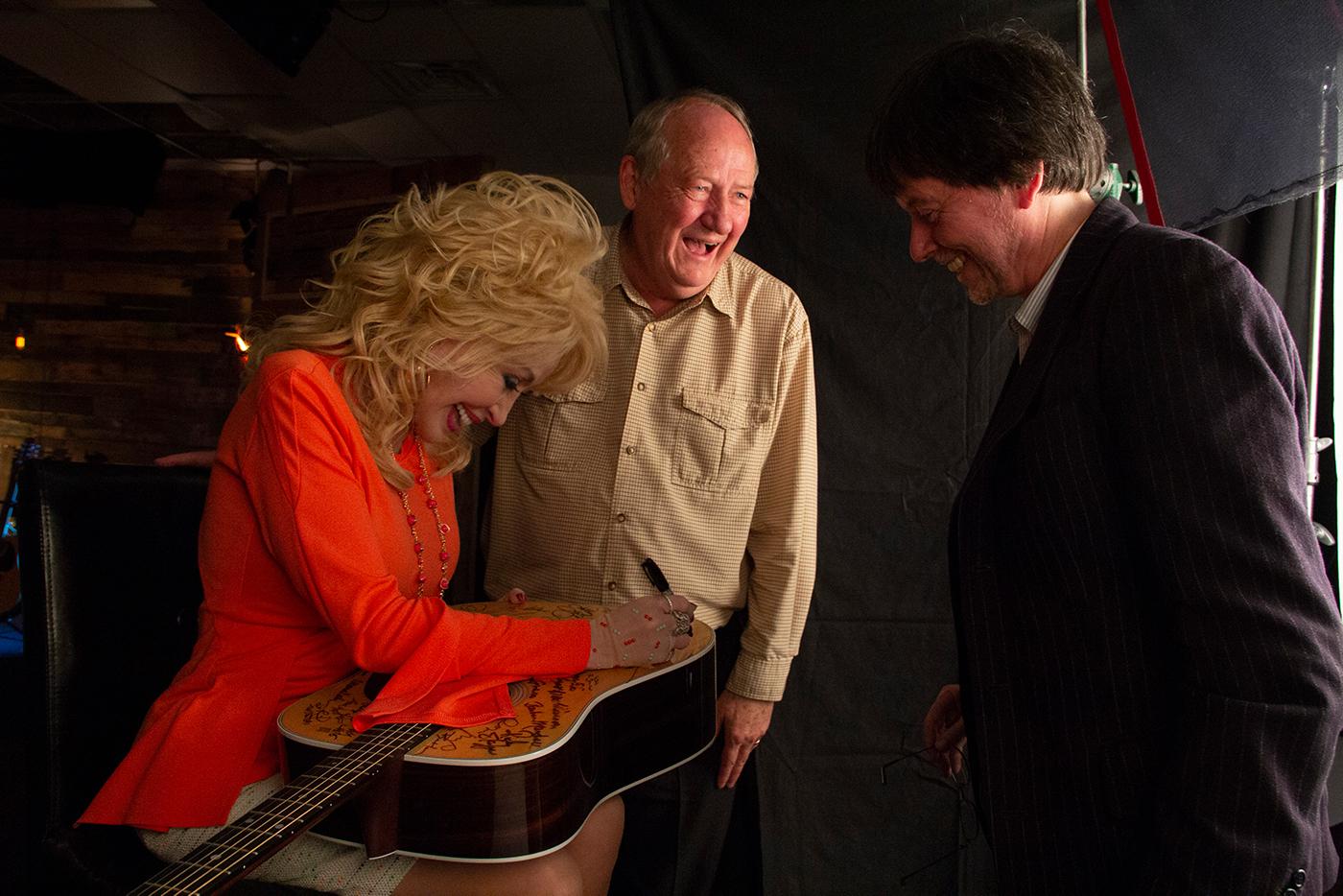 Dolly Parton signs a Martin D-28 guitar, with Dayton Duncan and Ken Burns, after being interviewed for 'Country Music.' Photo: Katy Haas
Dolly Parton signs a Martin D-28 guitar, with Dayton Duncan and Ken Burns, after being interviewed for 'Country Music.' Photo: Katy Haas
Do you have any thoughts on country music today?
“I would just say that one thing that our film shows is that a debate about ‘what is country music’ is nothing new. There has always been a tension between so-called purists and people who are trying to push the boundaries. That’s another thing that’s I think unique about country music: that its artists are more aware, in general, of their traditions and their roots than many other genres.
“People are surprised that a black artist [Lil Nas X, whose “Old Town Road” set a record for longest length of time on the top of the U.S. Billboard chart] is blowing the roof off of the charts today, and I think our film shows that African American artists and country music are not strangers at all. That’s been part of the story of country music since the beginning.”
Did you discover new music in the process of making this film that is meaningful to you, or deepen your appreciation of songs you already knew?
“Country music at its best is a great art form created and performed by great artists. And when you create something that is really good, it doesn’t need any extra explanation; it just is really good, because the melody is great and it’s matched with poetry in ways that go directly to your heart and bypass everything else. You don’t need any explanation or background for it. At the same time, learning the stories behind some of those great songs really deepens your appreciation of them, and deepens I think your appreciation for the art of creating a great song.”
What do you say to people who have the kneejerk reaction of ‘I don’t like country music’?
“Ken, [producer] Julie [Dunfey], and I didn’t make this series for people who already know about country music, although we’ve learned that a lot of people who are well-steeped in country music learned new things from our film, and we always like that. We wanted to find the stories and tell the stories to as wide an audience as possible. We want to tell the story of this great art form, and in doing that, stripped ourselves of any preconceptions of what the story was.
“One of the principal things we learned was that, despite people’s sometimes narrow stereotypes of what country music is, it never was one style of music, and it still isn’t. It came from many roots and it sprouted many branches. It’s a much broader music than people generally give it credit for; as Dolly Parton says in the opening of the film, ‘You can dance to it, you can make love to it, you can play it at a funeral.’
“If you don’t come away from watching the whole series with eight or nine songs that you are moved by or want to hear more of, then we’ve failed. So my hope is, if you think you don’t like country music, give it a chance and you can make up your mind. I think both the stories and the music will inform and entertain and move you.”

